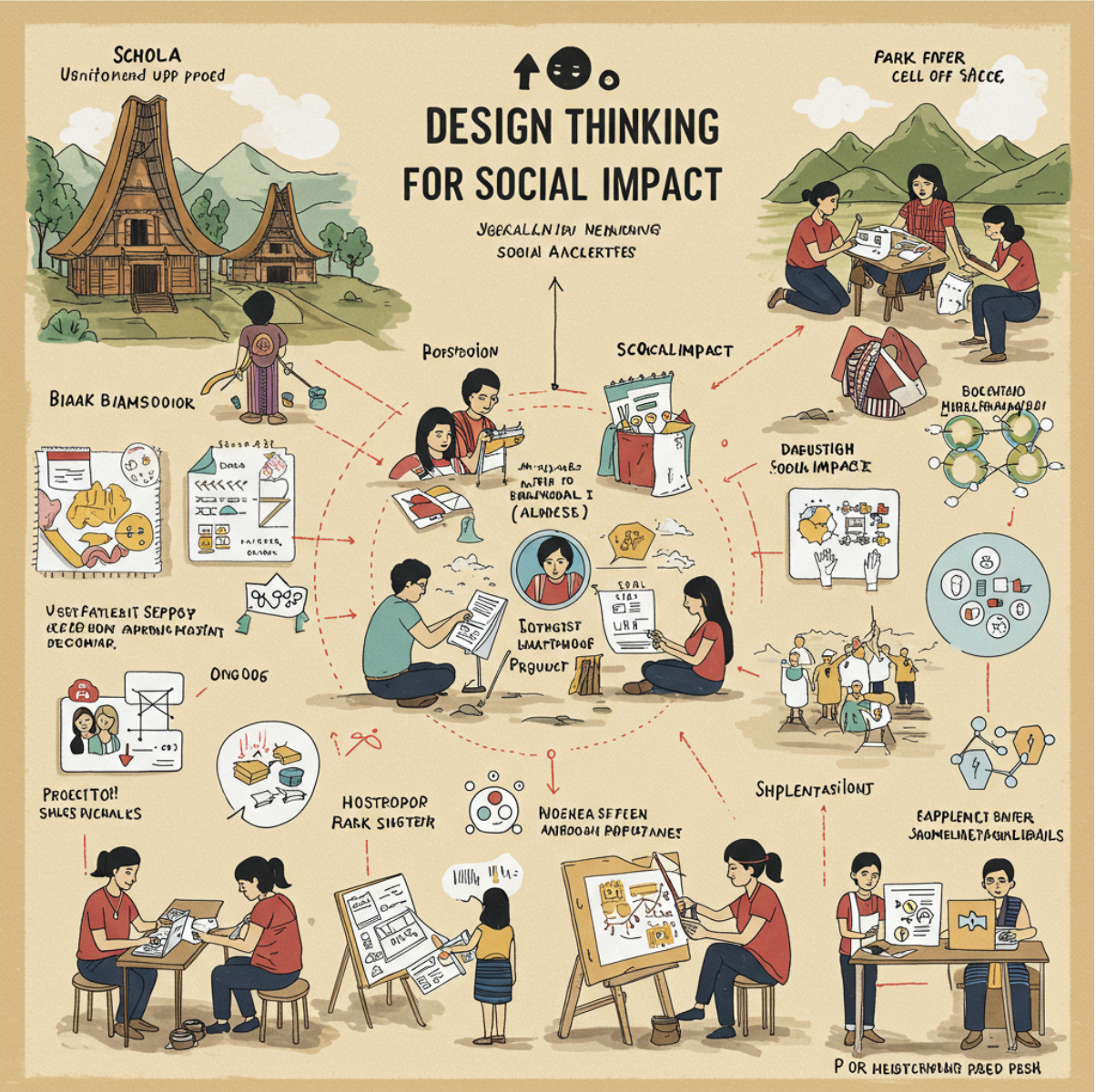Design Thinking for Social Impact in Nagaland: A Schola Approach

Design Thinking for Social Impact in Nagaland: A Schola Approach
When you hear the term "design thinking," you might picture sleek tech products or global companies running complex brainstorming sessions. But at its core, design thinking is a problem-solving framework that can take root anywhere—even in the hilltops of Nagaland. Here, where communities often balance tradition with emerging opportunities, design thinking can spark innovative solutions to local challenges, from accessible healthcare to efficient resource management. At Schola Classes, we promote this human-centered approach to empower learners, entrepreneurs, and community leaders across the Northeast.
1. What Is Design Thinking?
Design thinking revolves around understanding the needs of people, reframing problems, and coming up with creative yet feasible solutions. Usually broken down into stages—like Empathize, Define, Ideate, Prototype, and Test—this framework encourages continuous feedback loops, so that each iteration better addresses the core need.
1. Empathize: Observe, engage, and immerse yourself in the user's environment. In Nagaland, this might mean visiting a remote village to grasp how limited water access impacts daily life.
2. Define: Narrow down the specific problem or question. Is it about storing harvested rainwater more effectively? Reducing long walks for water?
3. Ideate: Generate diverse solutions—perhaps a community-run water tank or a bartering system for those who gather water.
4. Prototype: Create a scaled-down version of the solution to see if it works. That could be a simple water drum or a digital pilot project for coordinating water usage.
5. Test: Gather real-world feedback. If something isn't working, refine or pivot.
2. Why Design Thinking Matters in Nagaland
1. Complex, Context-Specific Challenges
- The Northeast's unique blend of tribal practices, varied climates, and remote geographies means that one-size-fits-all solutions from urban areas often fall short.
- Design thinking respects local knowledge and traditions, encouraging solutions born out of community insights rather than top-down directives.
2. Community Empowerment
- Unlike rigid problem-solving methods, design thinking is inclusive and participatory. It invites all stakeholders—elders, youth, entrepreneurs, or local officials—to brainstorm and co-create.
- This fosters a sense of ownership, ensuring that solutions aren't abandoned once outside facilitators leave.
3. Adaptability
- Because design thinking relies on rapid prototyping and iterative feedback, solutions can adapt quickly to changing conditions—be it evolving weather patterns or shifting market demands.
3. Schola Classes' Role in Promoting Design Thinking
1. Workshops Tailored to Local Context
- We integrate real Nagaland-based case studies: how might a village's weekly market function more efficiently? Or how could digital literacy spread faster in remote schools?
- By grounding lessons in regional realities, participants see immediate relevance—and are eager to apply insights in their communities.
2. Hands-On Projects
- Schola encourages learners to form teams and tackle community issues, moving through each design thinking phase. They might develop an app for local artisans or prototype a micro-irrigation system for sloped farms.
- Mentors guide each stage, ensuring participants learn by doing, not just memorizing theory.
3. Cross-Disciplinary Collaborations
- We invite guest speakers—entrepreneurs, non-profit leaders, government officials—who offer contrasting perspectives. Engaging with people from diverse fields catalyzes truly innovative ideas.
4. Success Stories: Real Impact of Design Thinking
1. Accessible Village Healthcare
- A group of Schola learners identified long waits and travel distances as barriers to basic medical check-ups. Using design thinking, they piloted a rotating "mini-clinic" schedule, with local volunteers trained in first aid. The prototype's success led to permanent weekend health camps.
2. Enhancing Rural Tourism
- Another team worked with homestay owners to improve the tourist experience. After empathizing (staying overnight, interviewing travelers), they tested a digital reservation system and cultural workshops. Community feedback was glowing, leading to higher bookings and a shared sense of pride in local heritage.
5. Tips for Adopting Design Thinking in Everyday Projects
1. Start with Empathy
- Whether designing a new product or planning a local event, begin by listening to those who'll be impacted. Seek out their frustrations, hopes, and daily struggles.
2. Involve Diverse Voices
- Don't limit brainstorming to "experts" alone. Include youth, artisans, elders—anyone who can broaden your perspective.
3. Prototype Early and Cheaply
- Don't wait for a perfect version. Mock up something basic—like a paper sketch or a small-scale pilot—and gather feedback quickly.
4. Embrace Failure as Learning
- If a prototype flops, it's not a dead end; it's valuable data. Apply those lessons to refine your approach.
6. Looking Ahead: The Future of Design Thinking in the Northeast
1. Integrating into Education
- As design thinking gains traction, local schools could incorporate it into curriculums, teaching students to solve community issues creatively from a young age.
2. Government Policy Influences
- Policymakers might adopt user-focused methodologies, hosting "design sprints" on topics like infrastructure or job creation. Such shifts can significantly elevate public services.
3. Entrepreneurial Ecosystem Growth
- Startups emerging from design thinking mindsets may drive more synergy between tradition and innovation—be it in sustainable crafts, eco-tourism, or advanced agriculture.
Conclusion
In Nagaland and across the Northeast, design thinking isn't just a trendy buzzword—it's a powerful tool for community-led innovation. By centering on empathy, collaboration, and iterative learning, we can craft solutions that genuinely resonate with local realities. At Schola Classes, we champion this approach, inviting learners to blend cultural richness with forward-thinking methodologies. The result? A region that not only preserves its heritage but also pioneers new ways of addressing challenges—both big and small.
Ready to harness design thinking in your projects or community initiatives? Explore our programs at Schola, where hands-on workshops, mentorship, and vibrant collaboration await. Together, let's design a brighter future—one prototype, one conversation, and one community-driven success story at a time.